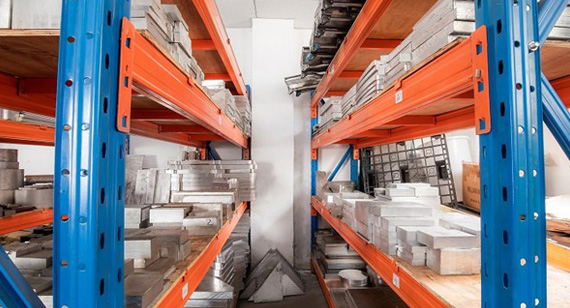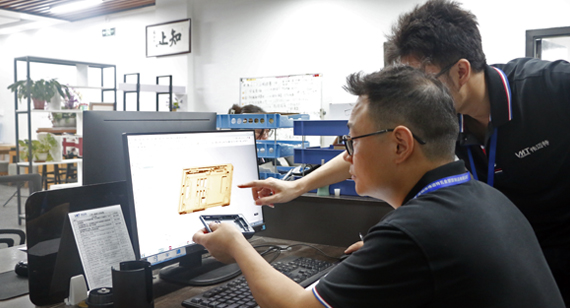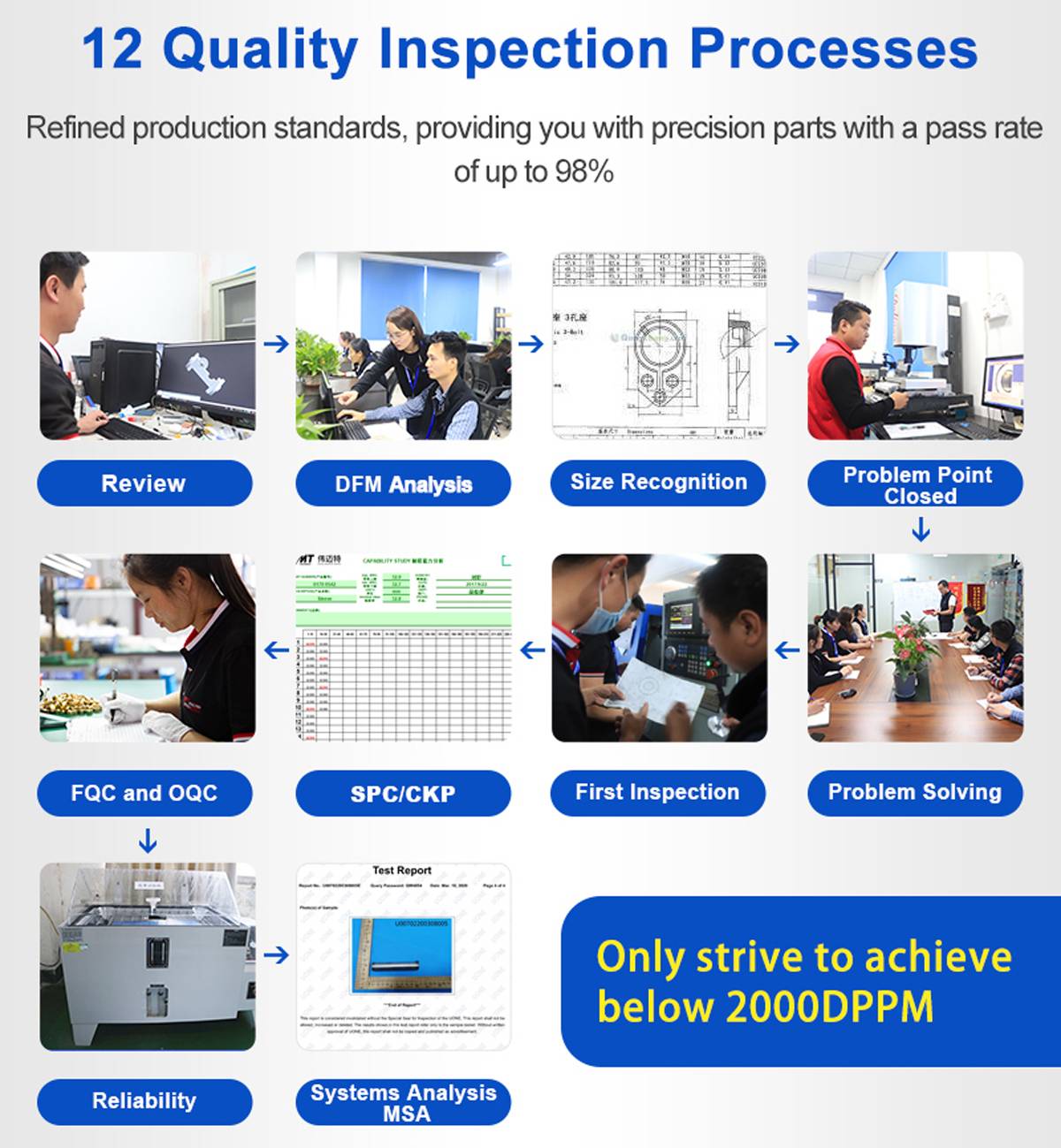15 years one-stop China custom CNC machining parts factory

Hey there I’m VMT Sam!
With 25 years of CNC machining experience we are committed to helping clients overcome 10000 complex part-processing challenges all to contribute to a better life through intelligent manufacturing. Contact us now
 124 |
Published by VMT at May 03 2024
124 |
Published by VMT at May 03 2024
In the field of CNC machining, aluminum and its alloys are widely used due to their excellent thermal conductivity, ductility, and lightweight properties. However, aluminum materials are prone to deformation during the machining process, posing a serious threat to the quality and accuracy of aluminum CNC machined parts. Therefore, effectively preventing deformation during aluminum machining has become a key issue that CNC machining factories urgently need to address. This article will explore measures to prevent deformation during aluminum machining from multiple aspects, aiming to provide valuable reference for CNC machining factories.

Material Selection and Preparation
First and foremost, selecting appropriate aluminum materials is the foundation for preventing deformation during machining. High-quality and stable-performance aluminum materials should be prioritized, while low-quality or substandard materials should be avoided. Additionally, thorough heat treatment of aluminum materials before machining is essential to eliminate internal stress and enhance material stability. Moreover, adopting proper cutting methods and cutting speeds also plays a crucial role in reducing deformation.

Optimization of Machining Processes
The rationality of machining processes significantly impacts deformation during aluminum machining. It is important to strictly control environmental temperature during machining to avoid excessive heat or cold that may cause material deformation. Furthermore, selecting suitable cutting tools, optimizing cutting parameters, and ensuring adequate cooling during the machining process are key measures to minimize deformation. Additionally, regular maintenance of CNC machine tools to ensure their accuracy and stability is an effective way to prevent deformation.
Improvement of Product Design
Poor product design often leads to deformation during aluminum machining. Therefore, during the product design phase, engineering requirements should be fully considered to avoid design flaws, lack of rigidity, or overly thin design. By optimizing product design to improve part rigidity and stability, deformation during machining can be effectively reduced.

Standardized Construction Methods
The standardization of construction methods is crucial for preventing deformation of aluminum machined parts. During the machining process, adherence to operating procedures is essential to avoid improper tooling, unskilled operators, or operational errors. Furthermore, the adoption of advanced CNC machining technologies, such as high-speed cutting and precision grinding, can further enhance machining accuracy and efficiency, reducing the risk of deformation.
Strengthening Process Monitoring and Adjustment
During aluminum machining, process monitoring should be strengthened to promptly identify and address factors that may cause deformation. By regularly inspecting the dimensions, shapes, and surface quality of aluminum parts, the stability and controllability of the machining process can be ensured. If deformation issues are detected, machining should be halted immediately, and corrective measures should be taken. Additionally, real-time monitoring and data analysis of the machining process using advanced detection equipment and software can more accurately predict and prevent deformation issues.

Introduction of Advanced Technologies
With the continuous advancement of technology, more and more advanced technologies are being applied in the field of CNC machining. For example, the introduction of advanced cutting tools and cutting techniques can effectively improve the stability and accuracy of aluminum machining. The use of intelligent machining systems and online detection technologies can monitor and adjust machining parameters in real time, reducing the risk of deformation. Furthermore, numerical simulation and simulation technologies can predict and optimize the machining process, further enhancing machining quality and efficiency.
Strengthening Personnel Training and Management
CNC machining factories should strengthen the training and management of technical personnel to improve their professional skills and operational proficiency. By organizing regular training sessions, skills competitions, and other activities, the exchange and learning among technical personnel can be promoted. Establishing a sound quality management system and incentive mechanism can stimulate the enthusiasm and creativity of technical personnel. Additionally, enhancing safety awareness education is essential to ensure safety and stability during the machining process.
In conclusion, preventing deformation during aluminum machining requires measures from multiple aspects, including material selection and preparation, optimization of machining processes, improvement of product design, standardization of construction methods, strengthening process monitoring and adjustment, introduction of advanced technologies, and strengthening personnel training and management. CNC machining factories should take effective measures based on their actual conditions to ensure the quality and accuracy of aluminum CNC machined parts. Furthermore, continuous exploration and research of new machining technologies and methods can improve the level and efficiency of aluminum machining, contributing to the development of the manufacturing industry.
Ready To Start Your Next Project?
Get Instant Quote

Request a Free Quote
Send us a message if you have any questions or request a quote. We will get back to you ASAP!